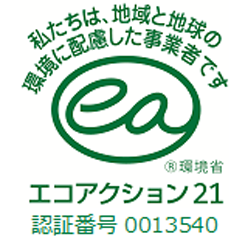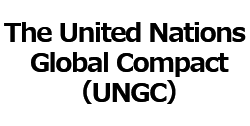Initiative Support and Participation Policy
DHR and the Asset Manager share the Daiwa House Group’s basic approach of “Creating Dreams, Building Hearts.” To attain a sustainable society, it is essential that we include environmental, social, and governance (“ESG”) considerations in real estate investment management operations. We also believe that this will contribute to DHR’s basic policy of ensuring stable revenue and achieving steady asset growth over the medium to long term. As such, DHR has been applying the above matters to its real estate investment management business.
DHR and the Asset Manager believe climate change, human rights, diversity, equity, and inclusion, and biodiversity are particularly important social issues to address. By joining the initiatives related to the above, we will continue to actively work on solving social issues.
Signing on to the Principles for Responsible Investment (PRI)
The “Principles for Responsible Investment (PRI)” is a network of international investors endorsed by the United Nations Environment Programme Finance Initiative (UNEP FI) and the United Nations Global Compact (UNGC). The investors who are signatories to the PRI declare to include ESG issues into investment decisions, and while helping the beneficiaries enhance long-term investment performance and fulfilling their fiduciary duty as responsible investors over the long term, they aim to create an abundant world for all stakeholders.
The Six Principles for Responsible Investment
- We will incorporate ESG issues into investment analysis and decision-making processes.
- We will be active owners and incorporate ESG issues into our ownership policies and practices.
- We will seek appropriate disclosure on ESG issues by the entities in which we invest.
- We will promote acceptance and implementation of the Principles within the investment industry.
- We will work together to enhance our effectiveness in implementing the Principles.
- We will each report on our activities and progress towards implementing the Principles.
The Asset Manager agreed with the basic approach of the PRI and became a signatory in February 2021.

Support for the Task Force on Climate-related Financial Disclosure (TCFD) Recommendations
The Financial Stability Board (FBS) launched the Task Force on Climate-related Financial Disclosures (TCFD) for the purpose of examining how climate-related information is to be disclosed and the how financial institutions should respond.The TCFD considers that climate change presents a serious risk to the world economy, and publishes recommendations for companies, etc. to grasp and disclose climate-related financial data around the thematic areas of “Governance,” “Strategy,” “Risk Management” and “Metrics and Targets.”
The TCFD Consortium was established as an organization to promote initiatives in which companies that support the TCFD recommendations, financial institutions, etc. work together, and to discuss initiatives that will lead to effective information disclosure by companies and appropriate investment decisions by financial institutions, etc. based on the disclosed information.
The Asset Manager has shown its support for the TCFD recommendations and has joined the TCFD Consortium, an organization consisting of domestic companies supporting the TCFD recommendations.
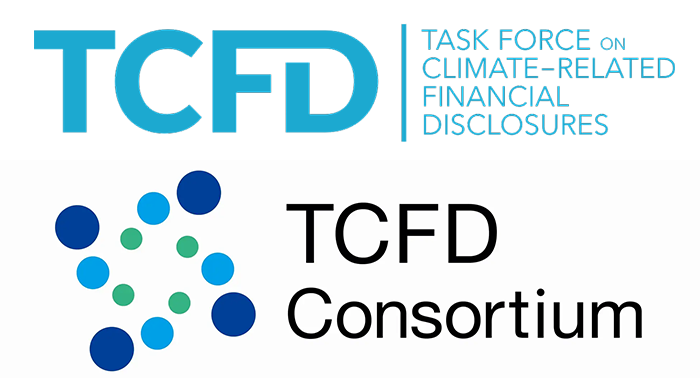
Certification as Science Based Targets (SBT) by SBT initiative
DHR has set targets to reduce GHG emissions by the fiscal year ending March 2031. These targets are science-based targets following the goals of the Paris Agreement that “aims to keep the global average temperature well below 2°C above pre-industrial levels and pursue efforts to limit global warming to 1.5°C.” DHR has received the Science Based Targets (SBT) certification from the international SBT initiative as the first J-REIT.
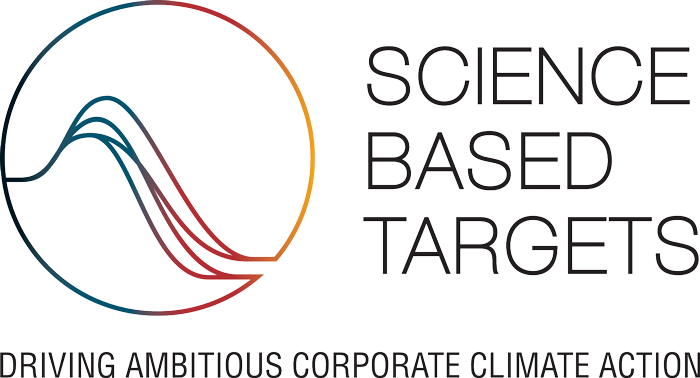
Participation in Race to Zero
Race to Zero is a global campaign to call for immediate action from businesses, local governments, investors, universities and other non-governmental actors worldwide to realize the goal of substantially zero GHG emissions by 2050.
Globally, 1,049 cities, 67 regions, 5,235 businesses, 441 investors, and 1,039 higher educational institutes participate in the Race to Zero, and they account for nearly 25% of CO2 emissions and over 50% of the GDP worldwide.
DHR aims to achieve substantially zero GHG emissions by 2050 and became the first J-REIT to join the Race to Zero.

Participation in RE Action – Declaring 100% Renewable
RE Action – Declaring 100% Renewable is a new framework for Japanese companies, local governments, educational institutions, medical institutions, and other organizations to express their willingness and action to transition 100% of their electricity use to renewable energy, and promote this transition.
DHR has set a target to transition to 100% renewable energy by 2050 and participated in the RE Action – Declaring 100% Renewable as the first J-REIT.
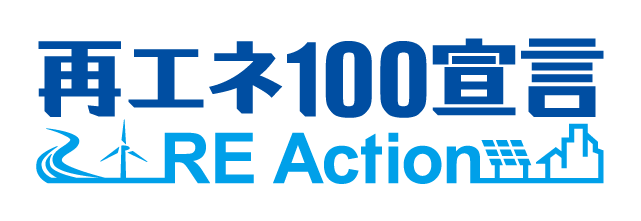
Participation in the Japan Climate Initiative (JCI)
The Japan Climate Initiative (“JCI”) is a network of Japanese companies, local governments, and NGOs that are actively working to prevent climate change, established in response to the 2015 Paris Agreement, aiming independently to realize a decarbonized society.JCI has created a nationwide movement in Japan to achieve a decarbonized society by supporting the activities of participating members, working on the governments, and partnering with the international society.
DHR and the Asset Manager joined the JCI as we agreed with this mission to realize a decarbonized society and joined the JCI after satisfying the participation requirements.
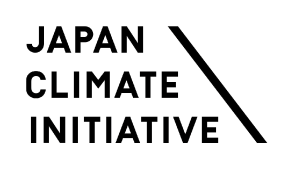
Signatory of the United Nations Global Compact (UNGC) and Joining the Global Compact Network Japan (GCNJ)
The United Nations Global Compact (“UNGC”) is the world’s largest sustainability initiative for bringing together the United Nations and private organizations (companies/associations) and building a sound global society. UNGC is an independent initiative for companies and associations to act as a good standing member of society and achieve sustainable growth by exercising responsible and creative leadership.
Companies and associations who are signatories to the UNGC are making ongoing efforts to realize the ten principles related to the protection of human rights, elimination of all forms of unfair labor, response to the environment, and the prevention of corruption based on a commitment from top management at each supporting company.
Local UNGC networks in each country around the world act as a platform aiming to foster sustainable development.The Global Compact Network Japan (“GCNJ”) was launched in Japan in December 2003 as a local Japan network. The GCNJ supports member companies and associations in Japan to take independent and strategic action toward the UNGC’s Ten Principles and engages in activities to realize a sustainable society, such as holding seminars and subcommittees made up primarily of member companies.
The Asset Manager agrees with the UNGC’s Ten Principles and has become a signatory. Furthermore, it has joined the GCNJ to take active action.
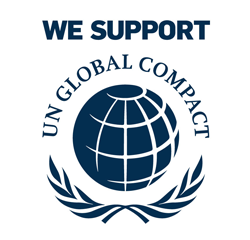
The Ten Principles of the United Nations Global Compact
| Human Rights | Principle 1 : Support and respect of the protection of human rights |
|---|---|
| Principle 2 : Not to be complicit in human rights abuses | |
| Labour | Principle 3 : Freedom of association and the effective recognition of the right to collective bargaining |
| Principle 4 : Elimination of all forms of forced and compulsory labour | |
| Principle 5 : Effective abolition of child labour | |
| Principle 6 : Elimination of discrimination in respect of employment and occupation | |
| Environment | Principle 7 : Precautionary approach to environmental challenges |
| Principle 8 : Initiatives to promote environmental responsibility | |
| Principle 9 : Development and diffusion of environmentally friendly technologies | |
| Anti-Corruption | Principle 10 : Working against corruption in all its forms, including extortion and bribery |
Signing on to the Principles for Financial Action for the 21st Century
Financial Behavior Principles for the Formation of a Sustainable Society (Principles for Financial Action for the 21st Century) are action guidelines for financial institutions that want to fulfill the responsibilities and roles necessary for the formation of a sustainable society. They were put together by the Drafting Committee with the participation of diverse financial institutions in October 2011 and subsequently revised in June 2022.
Each signatory financial institution implements efforts according to the seven principles below as much as possible based on its business content. One of the features is that it is positioned as a starting point for collaboration without being restricted by factors such as format, scale and region.

Financial Behavior Principles for the Formation of a Sustainable Society (The Seven Principles)
| Principle 1 Basic posture |
Recognizing the responsibilities and roles that financial institutions themselves play for the formation of a sustainable society, we will take the initiative in implementing best practices through our businesses, aiming to create positive impacts on the environment, society and economy, and mitigate negative impacts. |
|---|---|
| Principle 2 Contribution to a sustainable global society |
We will lead the formation of a sustainable global society by developing and providing financial products and services that contribute to the creation and development of industries and businesses through innovation, toward steady and fair transitions in society. |
| Principle 3 Contribution to the formation of sustainable communities |
We will support the solution of environmental, social and economic issues based on regional characteristics, and lead the formation of sustainable local communities by improving the inclusiveness and resilience of the region. |
| Principle 4 Human resource development |
We will recognize the importance of human capital in financial institutions, and develop human resources who can think for themselves and take action on environmental and social issues. |
| Principle 5 Collaboration with various stakeholders |
Recognizing the importance of cooperation among various stakeholders, including financial institutions, in order to form a sustainable society, we will not only participate in such efforts but also play an active role. |
| Principle 6 Building a sustainable supply chain |
We will actively address environmental issues such as global warming and biodiversity and social issues such as human rights, and build a sustainable supply chain through constructive engagement with business partners including investees and borrowers. |
| Principle 7 Information disclosure |
Recognizing that activities to enhance the sustainability of society are management issues, we will disclose our efforts to a wide range of stakeholders and make constant improvements based on domestic and international trends and disclosure frameworks. |
The Asset Manager agrees with these seven principles and has become a signatory.
Joining the Japan Business Initiative for Biodiversity (JBIB)
The Japan Business Initiative for Biodiversity (hereinafter referred to as “JBIB,” established in April 2008) is a group of Japanese corporations actively working to conserve biodiversity, and through the following five activities aims to contribute to the conservation of biodiversity in Japan and abroad by promoting joint research among various corporations tco produce results that cannot be achieved by a single corporation.
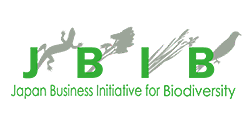
5 Objectives of JBIB
- To explore links between business and biodiversity and to use that knowledge in our business practices
- To promote dialogues and collaborations with stakeholders
- To share good practices within Japan and abroad
- To advocate and undertake educational efforts for the promotion of biodiversity conservation
- To conduct projects to fulfill the aforementioned objectives
The Asset Manager agrees with the significance of the activities of JBIB, and in January 2023 became the first asset manager of a J-REIT to join the initiative.
Joining the 30 by 30 Alliance for Biodiversity
30 by 30 is an initiative to halt the loss of biodiversity and put it on a recovery track (nature positive) by 2030. The goal is to effectively conserve at least 30% of land and sea as healthy ecosystems by 2030. In April 2022, a coalition of volunteers formed to promote efforts to achieve this goal. The coalition is known as the 30 by 30 Alliance for Biodiversity (hereinafter referred to as the “Alliance”). As a specific action to achieve 30 by 30, the Asset Manager will provide assistance in managing protected areas and areas registered (or expected to be registered) in the global database of OECMs.*
The Asset Manager agrees with the significance of the activities of the Alliance, and in December 2022 became the first asset manager of a J-REIT to join.
- Other Effective area-based Conservation Measures (OECMs): Areas outside of national parks and other protected areas in which biodiversity can be conserved effectively and over the long term.

EcoAction 21 Certification and Registration
EcoAction 21 is a third-party evaluation program to certify and register organizations which implement appropriate environmental initiatives, establish, operate, and maintain an environmental management system, and promote environmental communication in accordance with the EcoAction 21 Guidelines (Note) formulated by the Ministry of Environment.
The Asset Manager received the EcoAction 21 certification and registration in March 2020. Following the expiration of the certification, DHR and the Asset Manager underwent a subsequent review and received certification and registration once again.
- These guidelines formulated by the Ministry of the Environment define 14 action items (requirements) based on a PDCA cycle consisting of three factors: “environmental management system,” “environmental performance evaluation,” and “environmental reporting.”
